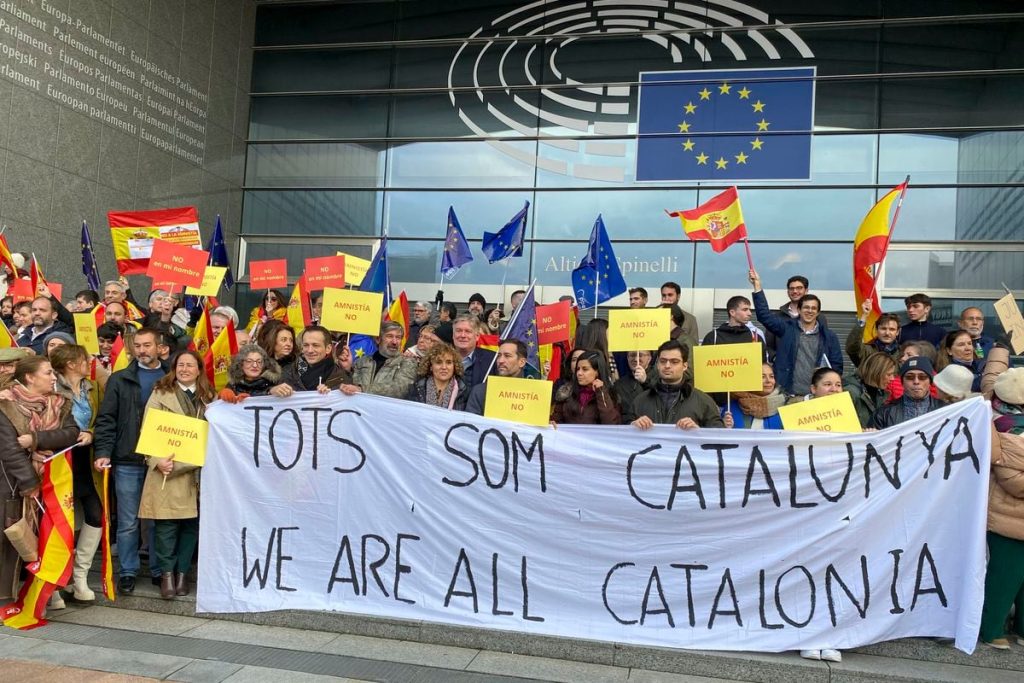The European Parliament held a debate in December protesting against the amnesty law in Spain, with European Commission officials stating that they will rely on the opinion of the Venice Commission when evaluating the law. The final analysis will only be completed and disclosed once the law is definitively approved by the Spanish Congress of Deputies. The Commission’s Director for Rule of Law, Fundamental Rights, and Democracy, Julien Mousnier, emphasized that the evaluation will consider the European law and values, with the Venice Commission’s opinion being a valuable contribution. The situation has been closely monitored by the Commissioner of Justice, Didier Reynders, and now by Vice-President Vera Jourová.
The Venice Commission’s Vice-President, Marta Cartabia, highlighted the main points of the Commission’s opinion during a video conference session with the European Parliament. The opinion supports the general goal of reconciliation through the law but recommends limiting the temporal scope of the amnesty more tightly. Concerns were raised about the law’s extension of the amnesty period through a recent amendment and the hastiness of the law’s processing. The Venice Commission suggested that the law should be approved by qualified majorities to ensure greater consensus due to the deepening division in Spanish society.
The debate in the European Parliament was initiated by the Popular Party in response to the Supreme Court opening a case against former President Carles Puigdemont for terrorism offenses. This move was seen as a way to alert the European Commission about what the Popular Party sees as a threat to democracy and the rule of law through the potential approval of the amnesty law. Some members criticized the politicization of the issue, with concerns raised about turning the discussion into a European political matter for internal party games. The session was less heated compared to previous parliamentary discussions on the topic, highlighting the deep political divisions in Spain.
The differing political positions on the Spanish amnesty law were made evident during the parliamentary session. Members of the Popular Party criticized the law as an indiscriminate amnesty granting impunity to those supporting the government that grants it. On the other hand, members of Ciudadanos and the Socialist Party defended the law as a step towards reconciliation and urged support for it to strengthen the rule of law and promote coexistence. The debate underscored the significant divide in opinions on the law within Spanish political circles, with the European Parliament serving as a platform for expressing these differing viewpoints.
The issue of the Spanish amnesty law has led to a wider European debate on legal and democratic principles. The European Commission’s reliance on the Venice Commission’s opinion underscores the importance of aligning national laws with European values. The protests and discussions in the European Parliament highlight the ongoing tensions within Spanish politics and society regarding the law. Moving forward, the decision on the amnesty law will have significant implications for Spain’s democracy and rule of law, as well as its relationship with the rest of Europe.


